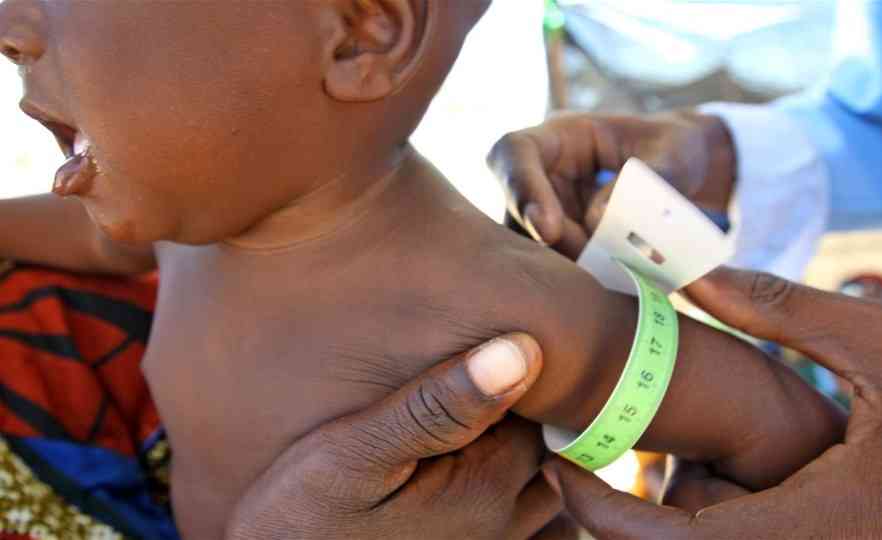
THERE is an increase in the number of children admitted at Mpilo Hospital in Bulawayo suffering from malnutrition as the effects of the El-Nino drought begin to show.
Zimbabwe has not been spared the effects of the drought that has left over seven million people in need of food aid.
President Emmerson Mnangagwa in April declared the drought a national disaster, and appealed for US$3billion in food aid.
The United Nations has also issued a flash-appeal to raise US$429.3 million for humanitarian assistance to prevent hunger related deaths.
Government has commenced a food aid distribution programme, but indications are that families in Matabeleland are already going hungry with children the hardest hit.
As a result, a number of children are being hospitalised due to malnutrition, Sunday Southern Eye established.
Mpilo Hospital head of nutrition unit Penny Ncube confirmed the malnutrition cases during a media tour of the institution organised by the United Nations Children’s Emergency Fund (Unicef).
Unicef and the government are working together to provide for children affected by malnutrition.
- Zimbabwe’s human wildlife conflict compensation scheme met with scepticism
- Mpilo Hospital cancer machine set for revival
- Help call for croc attack survivor
- PSMI worker commits suicide over mounting debts
Keep Reading
“The numbers of those being admitted are not very high, they are gradually going up,” Ncube said.
“We have nine patients at the moment and most of them are children of young mothers, who probably do not have good support systems.
“They need to be empowered so that they are able to fend for their children.
“The problem is that food is scarce, they don't have much at home because of the drought as many families did not harvest this year.”
Ncube said the admitted children were from Bulawayo and rural Matabeleland North.
“Some of the children were from as far as Binga and Tsholotsho districts, which have been seriously affected by the El Nino-induced drought,” she said.
“Some mothers have prematurely stopped breastfeeding to seek employment, thereby exposing their children to malnutrition.
“The hospital refers needy young mothers to the Department of Social Development, which then helps provide food.
“Unicef supplies supplements for the children and offers technical support to the nurses.”
One of the beneficiaries, a young mother, said she was struggling to feed her nine-month old baby.
“We came here (hospital) on May 14.
“My child’s weight was very low,” the 17 year old said.
“I was told my child needs to be monitored and be given milk and porridge to gain better weight.”
Unicef nutritionist Vengai Taremba said they were working with the government through the Health ministry to address issues of malnutrition.
“What it means is we have community health workers that are screening all children for acute management within the community and making sure that the children are referred for treatment once they have been identified with acute malnutrition,” Taremba said.
He added that they were also providing nutrition commodities used for the management and treatment of acute malnutrition.
“We are also integrating treatment services with strategies that look at prevention of all forms of malnutrition just to make sure that we don't wait to manage malnutrition,” Taremba said.
“But we also work on preventing malnutrition especially looking at the current El Niño-induced drought where we expect that malnutrition cases might increase.
“So we are coming up with strategies that prevent malnutrition under the current drought conditions.”
A 2024 global report on food crises released in April by the Global Network Against Food Crises in conjunction with the Food Security Information Network said up to 3,5 million people or 23% of the total country population were projected to face high levels of acute food insecurity.









